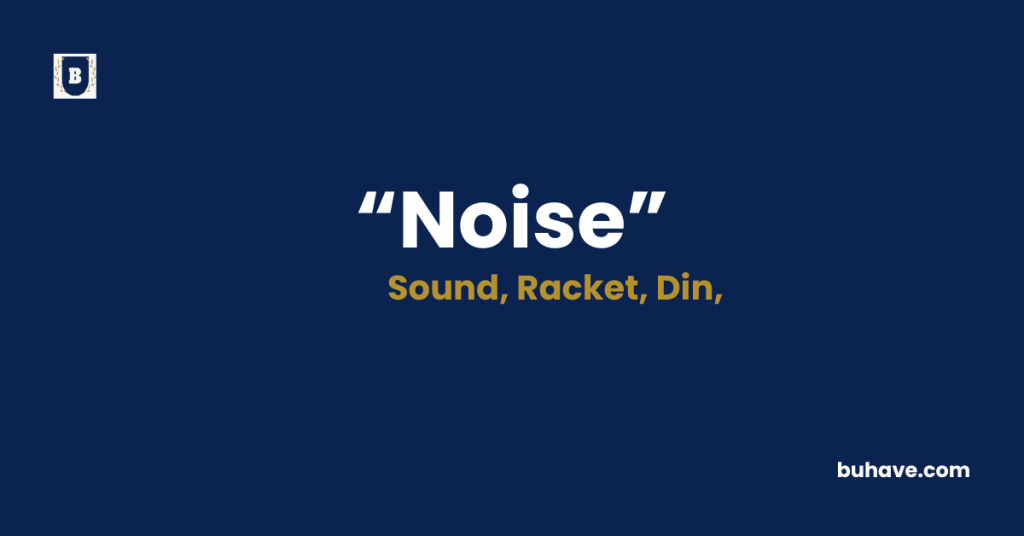The word ‘Noise’ (Noun) refers to any unwanted, disruptive, or loud sound that interferes with clarity, peace, or concentration. In this guide, you’ll learn the full meaning, definition, origin, practical examples, synonyms, antonyms, and common questions to help you use ‘Noise’ with accuracy and understanding.
Noise Explained in Depth
A complete and detailed guide to the word ‘Noise’ including meaning, definition, examples, etymology, synonyms, and antonyms.
Meanings of Noise
Noise means an unpleasant or disturbing sound, often loud or chaotic. It can refer to literal sound—like traffic, machinery, or shouting—or figurative distractions like background chatter, confusion, or data interference.
Definition
Noise is defined as any sound that is loud, disruptive, or lacks harmony. It can be mechanical, natural, human-made, or metaphorical such as “noise” in communication, which refers to anything that interferes with understanding.
Etymology
The word “noise” comes from the Old French noise, meaning “uproar” or “brawl,” which traces further back to the Latin nausea, meaning “seasickness” or “discomfort.” The shift to its modern usage reflects the idea of something uncomfortable or disruptive to the senses.
Example Sentences
- The constant noise from construction kept her awake all night.
- He couldn’t focus on his homework due to the background noise.
- There’s too much noise in this data to find a clear signal.
- The children made so much noise that the neighbors complained.
Noise Synonyms
- Sound
- Clamor
- Racket
- Din
- Commotion
- Uproar
- Static
- Roar
- Babel
- Cacophony
Noise Antonyms
FAQs about Noise
Here are some frequently asked questions (FAQs) about the word “Noise”
1. What is considered noise?
Any sound that is loud, annoying, or disruptive—such as sirens, construction, or chatter—is considered noise.
2. Is noise always bad?
No, but it often refers to unwanted or disturbing sounds. Some people may find certain types of noise—like white noise or nature sounds—soothing.
3. Can “noise” be used figuratively?
Yes. “Noise” can describe confusion, irrelevant data, or anything that interferes with clarity in communication or thought.
4. How is “noise” used in science?
In science and engineering, “noise” refers to unwanted variations that interfere with signal clarity in systems such as electronics or statistics.







